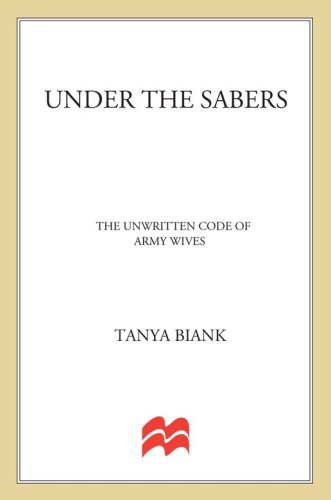
Under the Sabers
The Unwritten Code of Army Wives
کتاب های مرتبط
- اطلاعات
- نقد و بررسی
- دیدگاه کاربران
نقد و بررسی

December 12, 2005
For four years now, combat scenes from the war on terror have dominated our newspapers and our television screens. And though the White House recently released its National Strategy for Victory in Iraq, there's no sign that the war is actually slowing down. "No war has ever been won on a timetable," the White House plan says, "and neither will this one." That makes these upcoming books about private lives on the home front all the more important. Authors like Biank and Henderson show us how war affects not just soldiers, but families, and how war's effects linger after soldiers are called home. With Cindy Sheehan working on a memoir to be shopped by David Vigliano after the holidays, homefront books are poised to become nonfiction's next wartime trend. —Marcela Valdes
Under the Sabers: The Unwritten Code of Army Wives
Tanya Biank
. St. Martin's
, $23.95 (288P) ISBN 0-312-33350-1
In this insider's account of the sometimes-lethal strains that military life puts on families, Biank, an award-winning journalist and the daughter of a career army officer, finds much to admire in military spouses. She follows the lives of four women at Fort Bragg, N.C., home of the 82nd Airborne Division: the wife of a high-ranking officer who adds luster to her husband's career with her own polish; a senior noncommissioned officer's wife who ambivalently watches her son follow in his father's footsteps; a woman who falls in love with an enlisted man early in his career and struggles with balancing army demands with her own needs; and a former soldier who finds that the counterterrorist operative she married may be just as dangerous to her as he is to terrorists. Though her prose is sometimes clunky and some of the history feels a bit dated, Biank's novelistic sense of detail and suspense vividly demonstrates how "the Army... could bring couples closer together... or it could rip relationships apart." Army wives cope with unpredictable deployments and struggle to raise children alone, often on small paychecks, in a community both tightknit and sharply judgmental. "Army wives serve, too," says Biank—in an institution ambivalent about families. She makes sympathetic both their pride and their tragedies.

December 1, 2005
During the summer of 2002, at Fort Bragg near Fayetteville, NC, four base wives were murdered by their husbands, and the U.S. Army rose to assess why this happened and how, if at all, training men for combat influenced the men's attitudes toward wives and families. Biank, who covered the story for the "Fayetteville Observer", here focuses on one of the murdered victims and three other Fort Bragg army wives. She seeks to understand the extent to which the military environment may or may not have influenced how these women and their husbands interacted with each other, how stable their marriages were, and how they dealt with lengthy separations, with their husbands often in very dangerous environs. Biank has strong credentials for understanding and explaining army culture: in addition to having been a military reporter, she is the daughter and wife of army officers. Her very readable and thoughtful book delves into a rarely studied segment of the army and should be appreciated by a large general audience." -Suzanne W. Wood, emerita, SUNY at Alfred"
Copyright 2005 Library Journal, LLC Used with permission.

January 1, 2006
The author of this provocative portrait of modern army wives is herself an army wife and comes from an army family. That combination of experience and insight enhances the value of the book's depiction of the army-family community. Basically, army wives these days are more often than not educated professionals but are expected to function enmeshed in a unique hierarchy very different from anything in civilian life. Moreover, they are far more frequently required to move house and home than civilian wives, and their risk of suddenly becoming widows is constant. For this the army has established support networks, but again, those are sui generis. Overall, Biank furnishes a detailed reminder, if any is needed, that the military is still a hierarchical subculture dominated by male values that imposes a considerable burden on those semi-innocent quasi bystanders, army wives. A good choice for military collections of any size.(Reprinted with permission of Booklist, copyright 2006, American Library Association.)

























دیدگاه کاربران